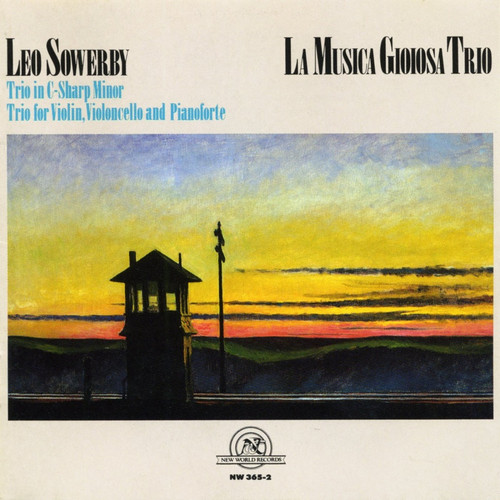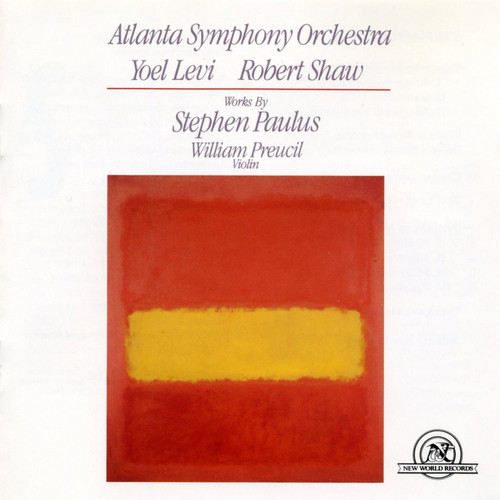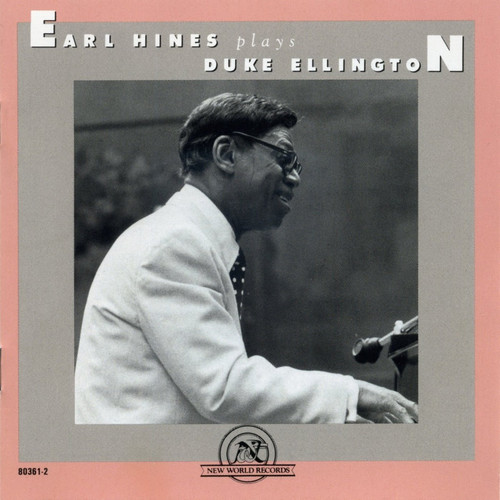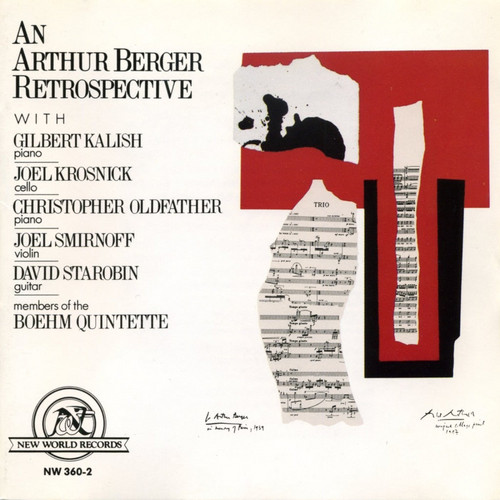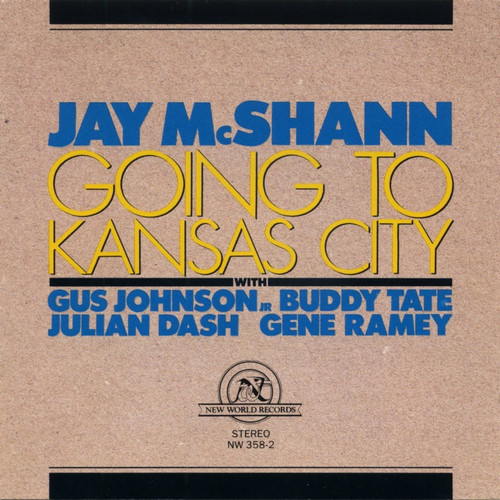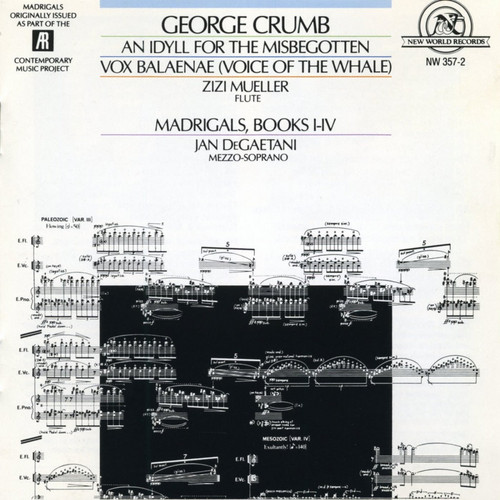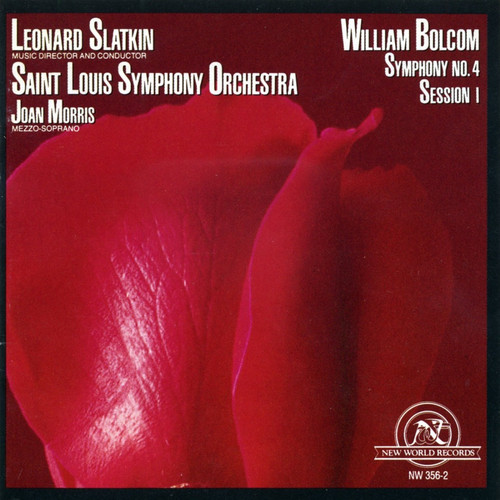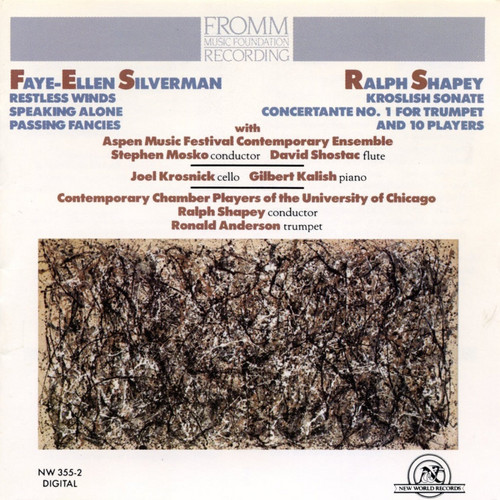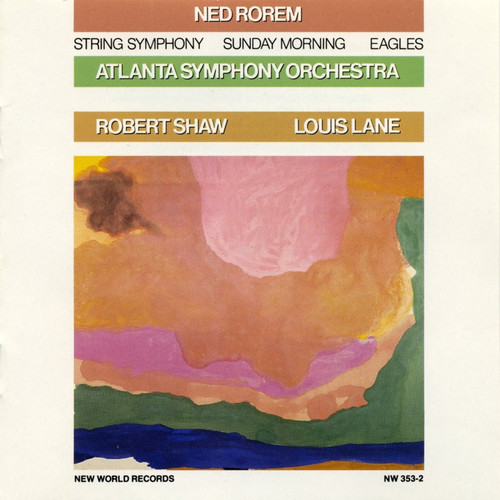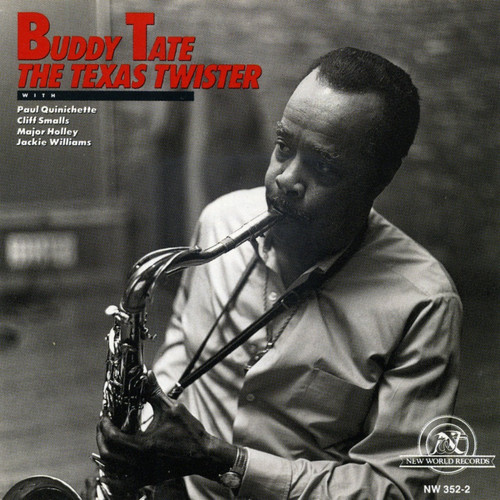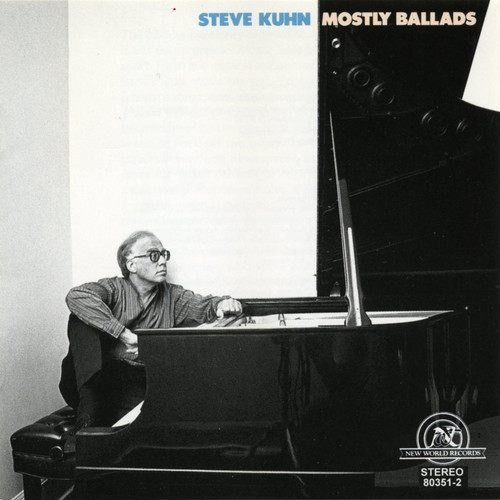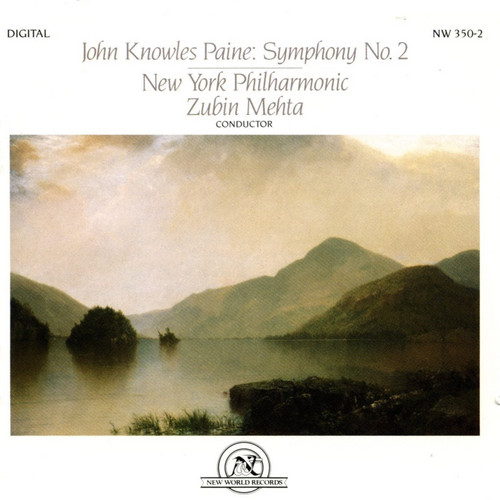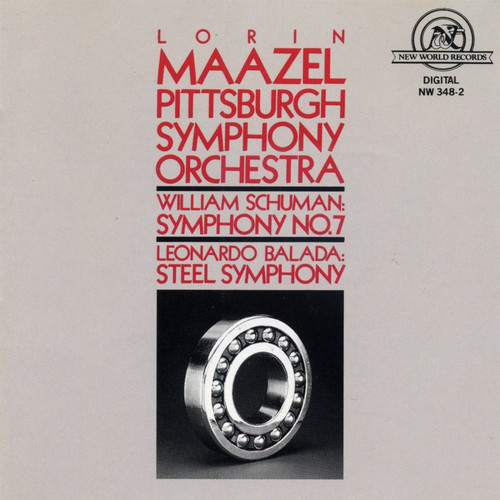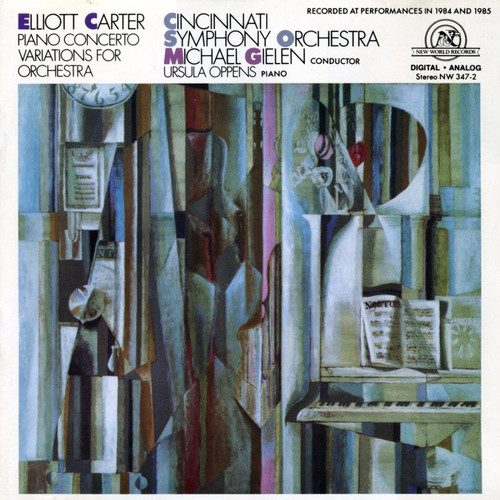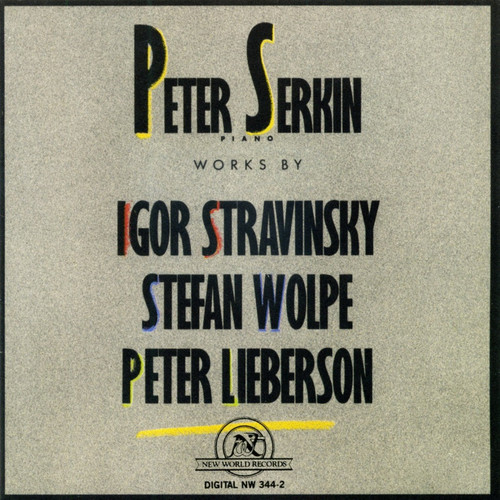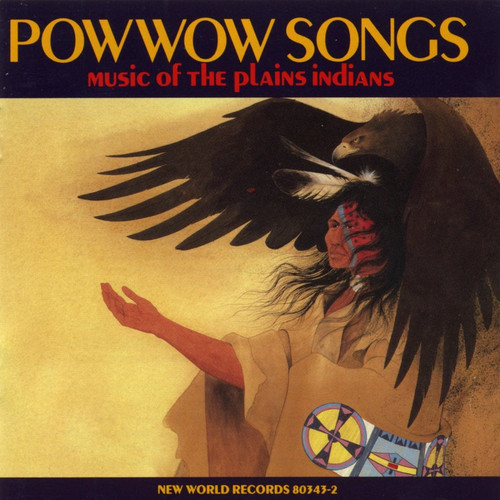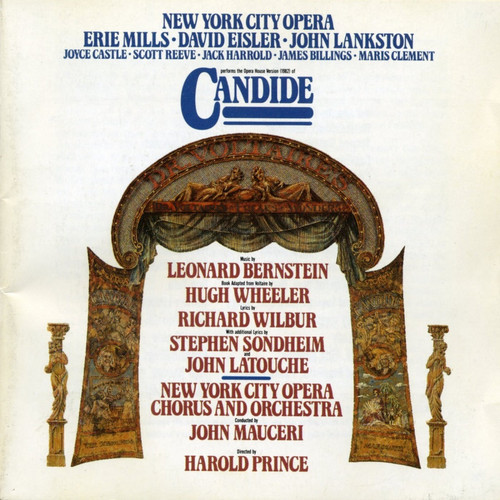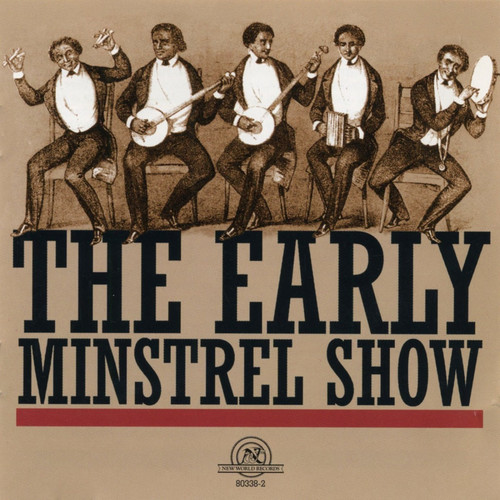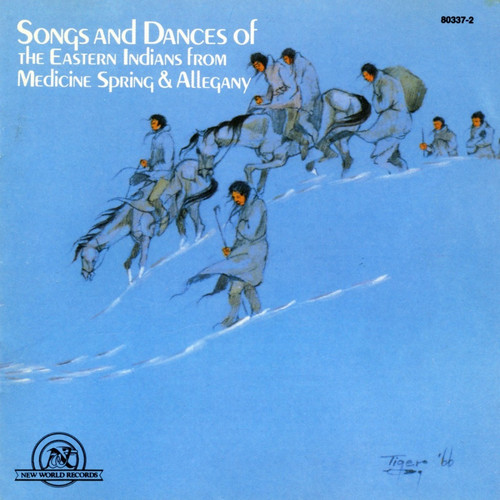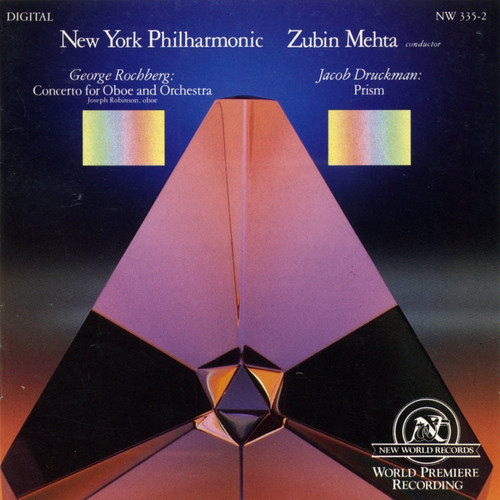★New World Records
Trio In C-Sharp Minor / Trio For Violin, Violoncello And Pianoforte
Leo Sowerby (1895-1968) lived for most of his career in Chicago where he spent more than 40 years on the faculty of the American Conservatory and nearly as long as organist-choirmaster of St. James Cathedral. His music can be described as "eclectic" …
Works By Stephen Paulus
Stephen Paulus's musical style is melodic and highly rhythmic. He tends to work in traditional forms, and his music is accessible to listeners possessing a wide range of tastes. Those seeking well-crafted contemporary music with a decidedly neo-Roman…
Earl Hines Plays Duke Ellington
When time pulled the rug from under Earl Hines in 1983, he was still enjoying a comeback that had lasted almost twenty years. That comeback was one of the most important events in recent jazz history and the music included here was recorded when his …
Arthur Berger, Gilbert Kalish, Joel Krosnick, Christopher Oldfather, Joel Smirnoff, David Starobin, Members Of The Boehm Quintette
An Arthur Berger RetrospectiveFor over fifty years Arthur Berger's output consisted of sturdily crafted pieces that reflected the mixed lineage of Stravinsky, Schoenberg, and Copland. Born in 1912 and raised in the Bronx, he first studied at City College and New York University, …
Going To Kansas City
Jay McShann secured a lasting place in jazz history on April 30, 1941, when he became the first bandleader to usher Charlie Parker into a studio for a commercial recording session. For years, that was how McShann was remembered, if at all—as an early…
An Idyll For The Misbegotten / Vox Balaenae / Madrigals, Books I-IV
George Crumb's (b 1929) music often juxtaposes contrasting musical styles. The references range from music of the Western art-music tradition, to hymns and folk music, to non-Western musics. Many of Crumb's works include programmatic, symbolic, mysti…
Symphony No. 4 / Session I
William Bolcom was born on May 26, 1938, in Seattle, and trained at the University of Washington and Stanford University, as well as with Darius Milhaud. He has written four symphonies, concertos for piano and for violin, chamber and solo instrumenta…
Works By Faye-Ellen Silverman And Ralph Shapey
Faye-Ellen Silverman has been prolific throughout her career. She has written a wide variety of orchestral and chamber-music works, which have been performed by major ensembles throughout America and in Europe and Asia. A graduate of Barnard College,…
String Symphony / Sunday Morning / Eagles
Perhaps best known for his vast catalogue of vocal music-operas, song cycles, and choral works-Ned Rorem (b. 1923) also has composed three symphonies, four piano concertos, and an impressive array of other orchestral and chamber works. He received th…
The Texas Twister
The Texas Twister is a relaxed, gently probing session; its several highlights begin with the title selection, a thirty-two-bar riff confection with a characteristically willful opening solo by Buddy Tate. His best playing on the date is heard on "Ta…
Mostly Ballads
The fullness and clarity of the six solos and six duets that comprise Mostly Ballads set them apart from the typical encounter of post-Parker jazz musicians with "the tradition." Standard songs, once the improviser's training ground, fell out of favo…
Symphony No. 2
The premieres of John Knowles Paine's two symphonies-the First in 1876, the Second in 1880-may be said to mark the effective beginning of the American symphonic tradition. American composer George W. Chadwick, who had been a young man in Boston in th…
Symphony No. 7/Balada: Steel Symphony
William Schuman was born in 1910 in New York. His earliest musical interests were at first confined to current popular music. In 1930, after hearing his first concert of symphonic music-Toscanini and the New York Philharmonic in a program of music by…
Piano Concerto / Variations For Orchestra
While a student at the Horace Mann School, Elliott Carter came to know Charles Ives. Carter continued his education at Harvard and then studied with Nadia Boulanger in Paris. Ives and Boulanger were formative influences: Carter's music draws on Ameri…
Piano Works
Pianist Peter Serkin is renowned for his performances and recordings of contemporary music. He has worked closely with composers such as Olivier Messiaen, Toru Takemitsu, Luciano Berio, and Peter Lieberson; he also was a founding member of the chambe…
Powwow Songs — Music Of The Plains Indians
Produced and annotated by Charlotte Heth, a member of the Cherokee nation of Oklahoma and a noted ethnomusicologist.
This disc offers ceremonial and social music of Indians from the Great Plains. Although the styles of singing and drumming vary grea…
Candide
Leonard Bernstein's musical adaptation of Candide started life in 1956 as a musical comedy, became an operetta, was heard several times in concert form, and if not home to roost once and for all in this recorded version, is certainly being cultivated…
The Early Minstrel Show
The racist stereotyping of blacks in the minstrel shows that enjoyed such enormous popularity during the latter half of the nineteenth century might be considered reason enough not to resurrect this material, but anything with so much cultural impact…
Songs And Dances Of The Eastern Indians From Medicine Spring & Allegany (Cherokee, Seneca)
Produced and annotated by Charlotte Heth, a member of the Cherokee nation of Oklahoma and a noted ethnomusicologist.
This disc offers ritual, ceremonial, and social music of Indians of the eastern United States. It demonstrates remarkable similariti…
Concerto For Oboe And Orchestra / Prism
George Rochberg seems an unlikely revolutionary, yet it was he, more than anyone else, who dealt the crushing blow to serialist orthodoxy. A student of Gian Carlo Menotti at the Curtis Institute in Philadelphia, Rochberg began as a modern mainstream …
